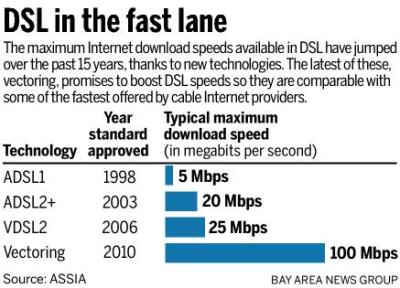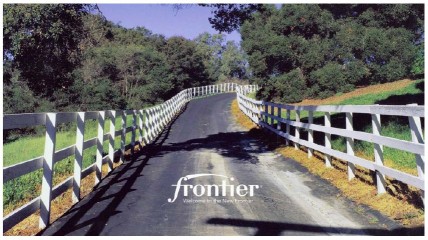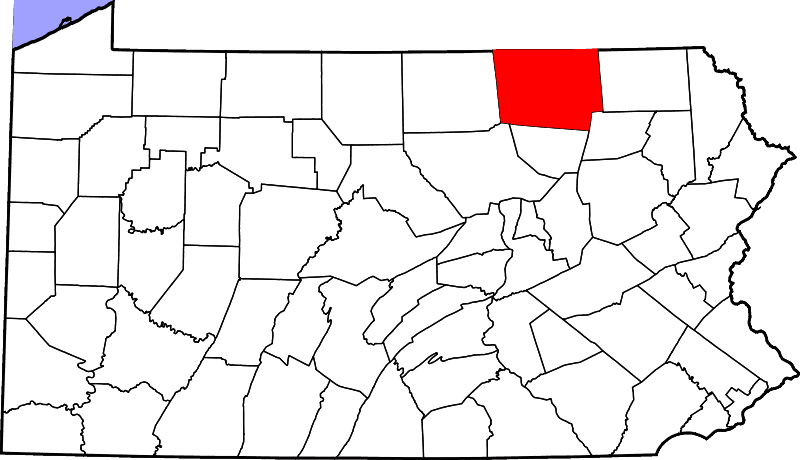 Frontier Communications had to be chased by West Virginia Attorney General Patrick Morrisey to improve broadband speeds for at least 28,000 DSL customers who thought they were buying 6Mbps DSL service but ended up with maximum speeds of 1.5Mbps or less.
Frontier Communications had to be chased by West Virginia Attorney General Patrick Morrisey to improve broadband speeds for at least 28,000 DSL customers who thought they were buying 6Mbps DSL service but ended up with maximum speeds of 1.5Mbps or less.
Frontier today agreed to a settlement with state officials to spend an extra $150 million to boost DSL speeds for rural customers around the state and offer deep discounts for affected customers until they can receive at least 6Mbps service. Today’s settlement has no impact on a separate class action lawsuit brought by Frontier customers who accuse the company of throttling broadband speeds to save money and reduce traffic on its network.
The agreement is the largest, independently negotiated consumer protection settlement in West Virginia history and is expected to improve broadband service over the next three years.
“This agreement is a game changer for the Mountain State,” Morrisey said. “The settlement helps consumers receive the high-speed service they expected, while directing significant monies to help fix connectivity issues that consistently keep our state from achieving economic success.”
For at least two years, Frontier customers sent Morrisey’s office complaints stating they were not getting the speed and performance Frontier advertised for its DSL service. While the company told both customers and investors it had blanketed West Virginia with speeds “up to 6Mbps,” many customers discovered the phone company locked their modems to receive no better than 1.5Mbps.

Attorney General Morrisey
Frontier denied any allegation of wrongdoing and says it entered into the settlement to resolve disputed claims without the necessity of protracted and expensive litigation. But it will cost the company at least $150 million in additional upgrades, not including the $180 million Frontier already earmarked for broadband expansion in West Virginia, partly subsidized by the ratepayer-funded Connect America Fund.
About 28,000 customers identified by Frontier with modems the company provisioned for service at speeds of 1.5Mbps or lower will begin seeing an ongoing credit applied to their bills beginning Jan. 25, 2016, reducing the price of Frontier’s DSL service to $9.99 a month.
Affected customers can verify if they are included in the settlement on a special website Frontier has set up for its West Virginia customers.
The discounts will continue individually for each customer until the company can demonstrate it can deliver the 6Mbps speeds customers in West Virginia paid to receive. New Frontier DSL customers with speeds no better than 1.5Mbps will also qualify for the discount. Those with modems locked at speeds above 1.5Mbps but still getting less than 6Mbps will not benefit from this settlement, but may still get relief from a separate class action lawsuit covering customers in the state being heard in Lincoln County.
Last week, Lincoln County Circuit Judge Jay Hoke rejected an effort by Frontier to have the class action case dismissed. The company insisted its terms and conditions forbade customers from taking Frontier to court, requiring them to pursue arbitration instead.
 Judge Hoke rejected Frontier’s arguments, finding the phone company “buried” the arbitration clause in fine print on its website and on the last pages of customer billing inserts. Hoke also ruled Frontier was attempting to retroactively apply its arbitration clause years after customers initially signed up for broadband service.
Judge Hoke rejected Frontier’s arguments, finding the phone company “buried” the arbitration clause in fine print on its website and on the last pages of customer billing inserts. Hoke also ruled Frontier was attempting to retroactively apply its arbitration clause years after customers initially signed up for broadband service.
“We are finally going to get our day in court,” Michael Sheridan, a Frontier customer in Greenbrier County and Stop the Cap! reader told the Charleston Gazette. Sheridan is suing Frontier over its poor performance in West Virginia. “We think this lawsuit is the best chance we’ll ever have of bringing real Internet to rural West Virginia.”
Frontier argued if customers were dissatisfied with its DSL service, they could have canceled but never did. The company did not mention many of the affected customers have no other options for broadband service except satellite Internet, which receives poor reviews.
“We respectfully disagree with the court’s ruling,” said Frontier spokesman Andy Malinoski. “In our view, arbitration provides for fair resolution of consumer concerns that is quicker, simpler, and less expensive than lawsuits in court. We plan to appeal.”
Frontier’s decision to appeal might take longer and cost more than addressing problems for at least some of the affected customers.
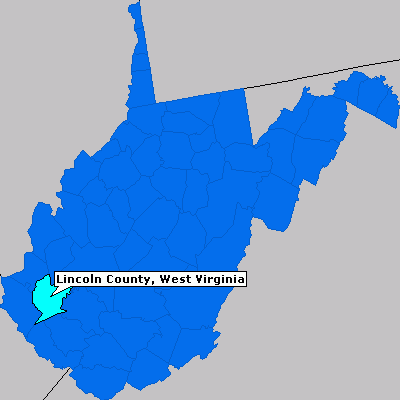 Judge Hoke also took a dim view of Frontier’s style of disclosing changes to its terms and conditions.
Judge Hoke also took a dim view of Frontier’s style of disclosing changes to its terms and conditions.
‘On the website, computer users must scroll to the bottom of the page and click on a “Terms & Conditions” link that’s “buried among 25 other links,” then click on two other links to find the arbitration provision that denies customers’ rights to a jury trial,’ Hoke wrote in his order. ‘There’s no button to click or box to check that allows customers to agree to Frontier’s terms. In monthly bills, the arbitration clause shows up one time on the “fourth and last page” of an insert and another time in “miniscule font,” Hoke found.
Customers would have to be psychic to guess Frontier had important news restricting their right to take a dispute to court.
“There is no reason whatsoever for a customer to turn to the last page,” Hoke wrote. “Additionally, the bills contain no prompting that customers should flip to the last page for information concerning Frontier’s desire to alter the customer’s right to a jury trial.”
While Frontier pursues its appeal at the state Supreme Court, Frontier is expected to lose million in revenue from the settlement with the Attorney General.
“The reduced rate gives Frontier a strong incentive to raise speeds for these customers,” Morrisey said.
Another provision in the settlement requires Frontier to pay $500,000 to the state’s Consumer Protection Fund. That payment will offset investigative and monitoring expenses in addition to helping defray the costs of transitioning consumers to higher Internet speeds.
Frontier spokesman Andy Malinoski said the company had planned to address the issues all along. He said the settlement will accelerate the improvements.
West Virginians seeking more information about the maximum speed their modem is provisioned to receive can call Frontier at 1-888-449-0217 for more information.
Those with further questions can contact the Attorney General’s Consumer Protection Division at 800-368-8808 or visit the office online at www.wvago.gov.



 Subscribe
Subscribe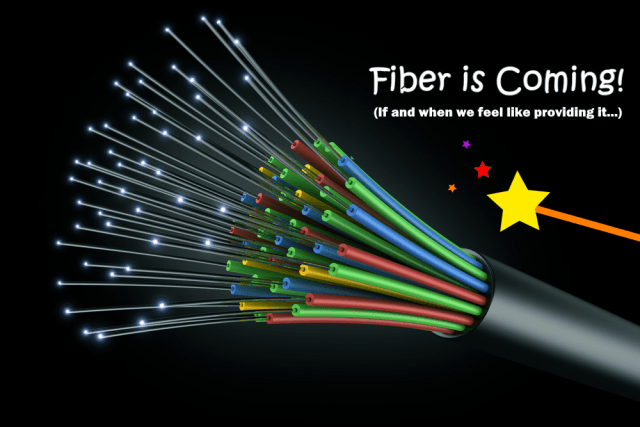 Frontier Communications has topped AT&T’s penchant for grandiose Fiber to the Press Release announcements with a new gigabit fiber to the home service now being promoted in Connecticut, despite being available to only two homes in a single upscale subdivision in North Haven.
Frontier Communications has topped AT&T’s penchant for grandiose Fiber to the Press Release announcements with a new gigabit fiber to the home service now being promoted in Connecticut, despite being available to only two homes in a single upscale subdivision in North Haven. “We think this is a good option for us: new builds, small complexes,” Ferraiolo said. “The developer is very happy with it and we’re very happy with it.”
“We think this is a good option for us: new builds, small complexes,” Ferraiolo said. “The developer is very happy with it and we’re very happy with it.” Frontier Communications had to be chased by West Virginia Attorney General Patrick Morrisey to improve broadband speeds for at least 28,000 DSL customers who thought they were buying 6Mbps DSL service but ended up with maximum speeds of 1.5Mbps or less.
Frontier Communications had to be chased by West Virginia Attorney General Patrick Morrisey to improve broadband speeds for at least 28,000 DSL customers who thought they were buying 6Mbps DSL service but ended up with maximum speeds of 1.5Mbps or less.
 Judge Hoke rejected Frontier’s arguments, finding the phone company “buried” the arbitration clause in fine print on its website and on the last pages of customer billing inserts. Hoke also ruled Frontier was attempting to retroactively apply its arbitration clause years after customers initially signed up for broadband service.
Judge Hoke rejected Frontier’s arguments, finding the phone company “buried” the arbitration clause in fine print on its website and on the last pages of customer billing inserts. Hoke also ruled Frontier was attempting to retroactively apply its arbitration clause years after customers initially signed up for broadband service. Judge Hoke also took a dim view of Frontier’s style of disclosing changes to its terms and conditions.
Judge Hoke also took a dim view of Frontier’s style of disclosing changes to its terms and conditions.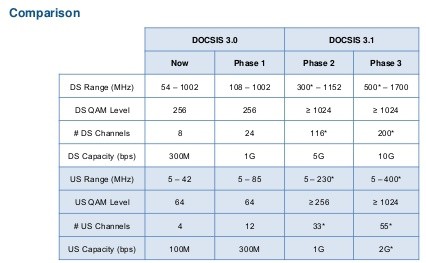
 Just a few years earlier, most providers wouldn’t think of offering discounted 10Mbps service, fearing it would cannibalize revenue as customers downgraded to get lower priced service. Increasing demands on bandwidth from online video and multiple in-home users have gradually raised consumer expectations, and their need for speed.
Just a few years earlier, most providers wouldn’t think of offering discounted 10Mbps service, fearing it would cannibalize revenue as customers downgraded to get lower priced service. Increasing demands on bandwidth from online video and multiple in-home users have gradually raised consumer expectations, and their need for speed.